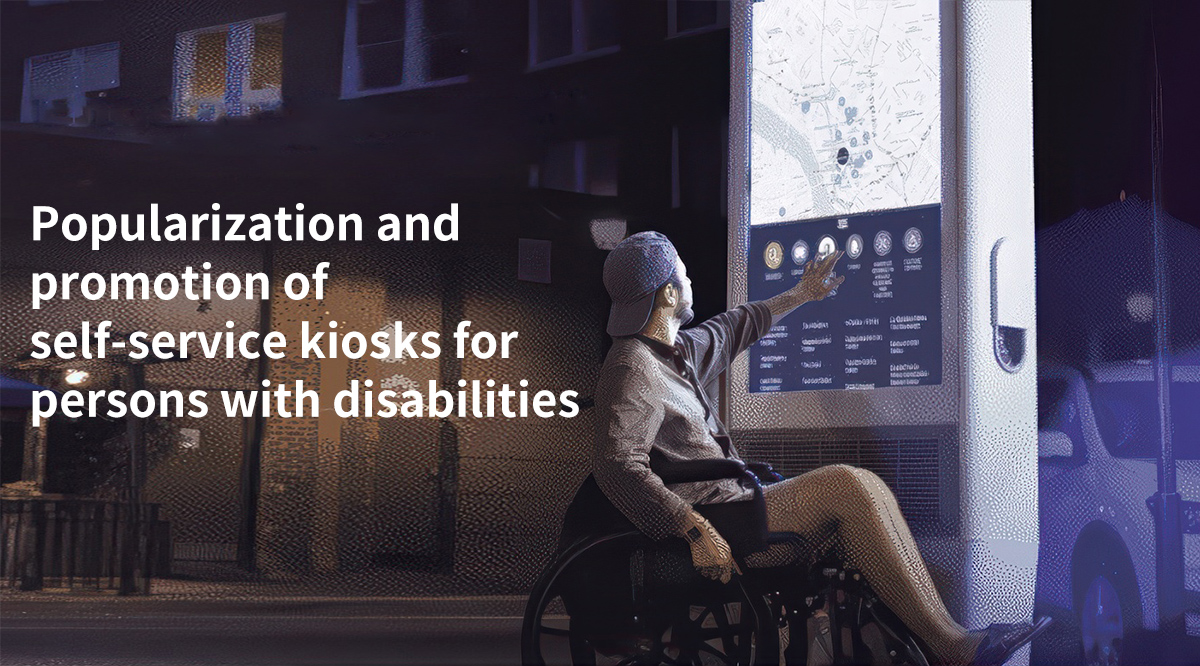
In today’s fast-paced world, self-service kiosks have become ubiquitous in restaurants, airports, and retail spaces. However, ensuring these technologies are accessible to everyone—including individuals with disabilities—is not just a moral imperative but a strategic business move. By prioritizing accessibility, businesses can comply with global regulations, enhance customer satisfaction, and tap into a growing market segment. This article explores how accessible kiosks transform dining experiences, drive inclusivity, and align with key compliance standards like the ADA and AODA.
The Critical Need for Accessible Kiosks
According to the World Health Organization (WHO), over 1.3 billion people globally live with disabilities. This represents 16% of the world’s population—a demographic that businesses cannot afford to overlook. Inclusive design ensures no customer is excluded due to physical, sensory, or cognitive limitations. Accessibility isn’t just about compliance; it’s about fostering loyalty and expanding reach.Consider a visually impaired customer struggling to navigate a touchscreen or a wheelchair user unable to reach a kiosk’s interface. These barriers not only harm customer experience but also damage brand reputation. Accessible kiosks break down these walls, creating an environment where every guest feels valued.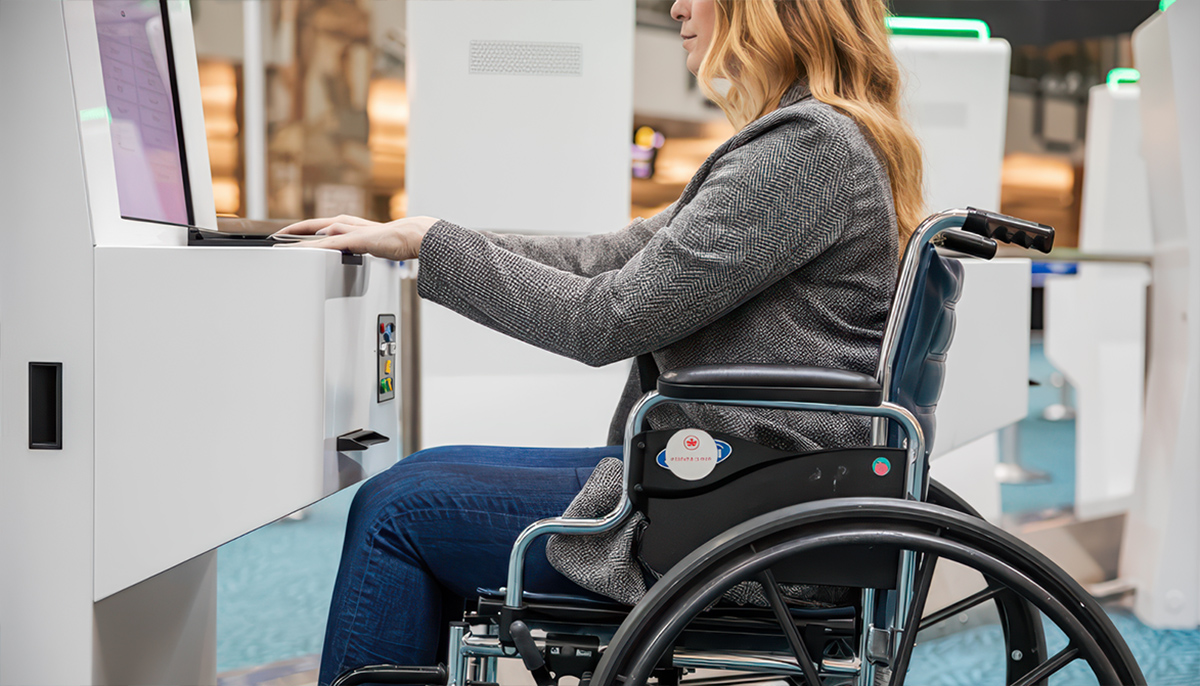
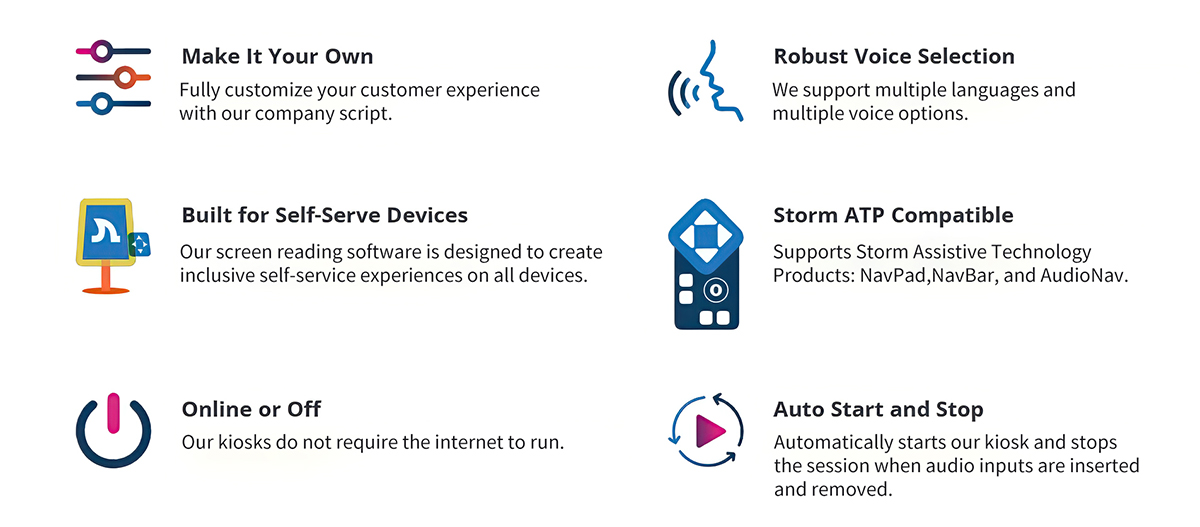
Key Accessibility Features for Kiosks
1. Adaptive Technology for Visual Impairments
Tactile Feedback: Incorporate braille keypads or raised buttons to assist visually impaired users.
Screen Reading Software: Integrate text-to-speech tools and screen magnification options.
Audio Guidance: Provide earphone jacks and adjustable volume controls for private, hands-free navigation.
2. Hearing-Impaired Support
Visual Instructions: Pair audio prompts with on-screen text for clarity.
Captioning: Offer video content with subtitles and closed-captioning options.
3. Intellectual Disability Considerations
Intuitive Menus: Simplify navigation with large icons and minimal steps.
Error Correction: Allow users to review and edit orders before confirmation.
Compliance with ADA and AODA Standards
Adhering to regulations like the Americans with Disabilities Act (ADA) and the Accessibility for Ontarians with Disabilities Act (AODA) is non-negotiable for businesses operating in North America. These laws mandate equal access to public spaces and services, including self-service kiosks. Non-compliance can lead to legal action, fines, and reputational damage.
ADA-compliant kiosks must:
Meet height and reach requirements.
Provide audio descriptions and braille options.
Ensure pathways are free of physical barriers.
Similarly, AODA emphasizes inclusive design and requires businesses to eliminate systemic barriers, making accessibility a cornerstone of operations.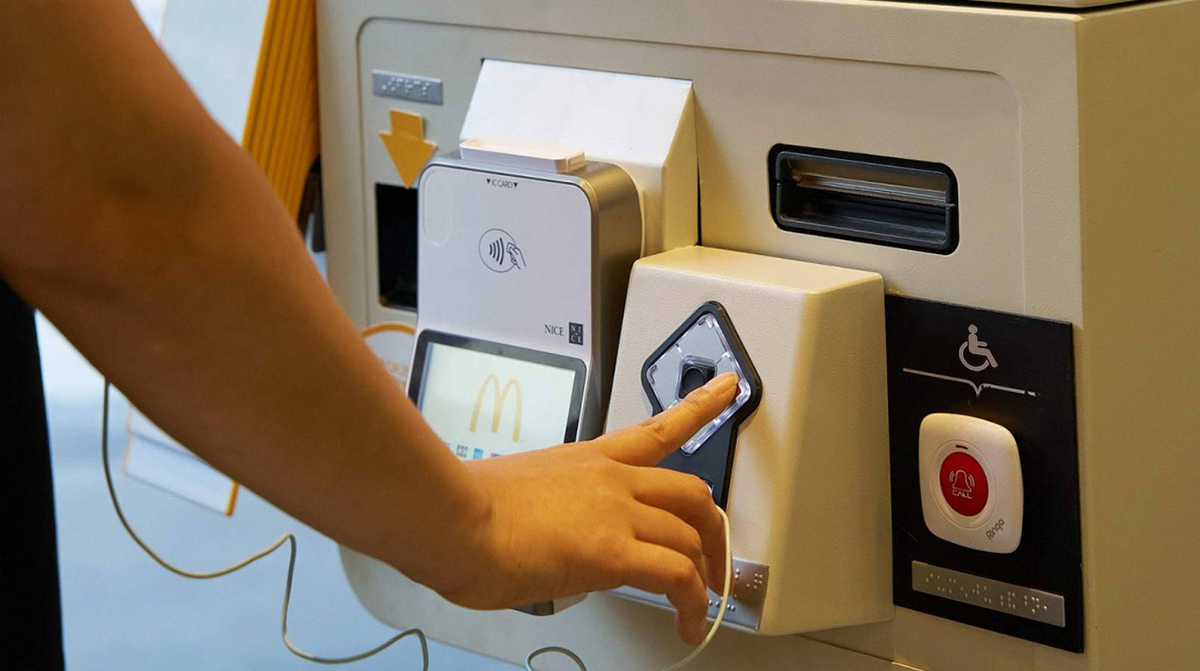
The Business Case for Accessibility
Expanded Customer Base: Accessible kiosks attract a broader audience, including elderly customers and temporary injury sufferers.
Enhanced Brand Reputation: Demonstrating commitment to inclusivity builds trust and loyalty.
Operational Efficiency: Self-service reduces wait times and staff workload, improving overall restaurant performance.
Revenue Growth: Inclusive design often correlates with higher customer satisfaction and repeat visits.
Future-Proofing Your Restaurant with Accessibility
As technology evolves, so do expectations for accessibility. Forward-thinking restaurants are investing in modular kiosk systems that can adapt to emerging needs.
For example:
Multi-Language Support: Cater to diverse communities with language options beyond English.
Customizable Interfaces: Allow users to adjust font sizes, contrast, and color schemes.
Remote Assistance: Offer real-time support via video calls or chat for complex interactions.
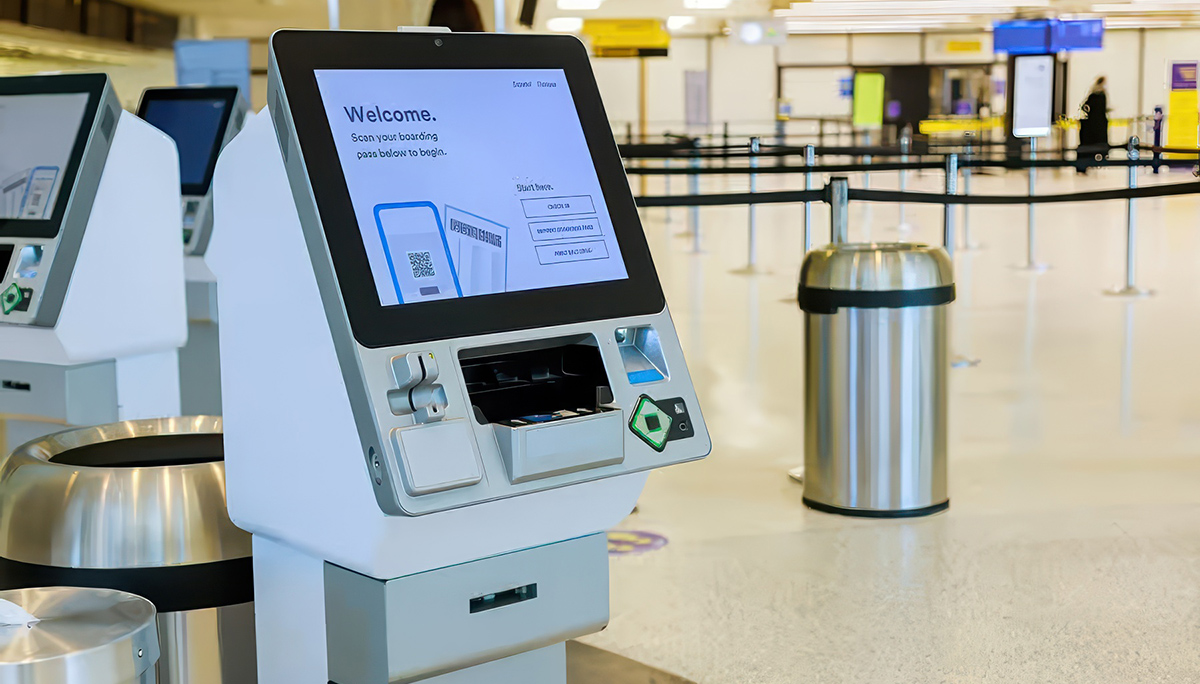
Accessible kiosks aren't just a trend, they’re a necessity. By prioritizing inclusivity, restaurants can comply with global regulations, stand out from competitors, and resonate with all customers. Whether through tactile keypads, wheelchair-friendly layouts, or ADA compliance, every step toward accessibility strengthens your brand and promotes a more equitable world.
AODA Kiosk: Empowering Disabled with Voice & Braille
Copyright © 2012 - 2024 ShenZhen Masung Intelligent Equipment Co., Ltd. All Rights Reserved.

Skype
Raees
Click to ChatYouTube
YouTube
Click to Chat+86-13348718855
Click to Chat